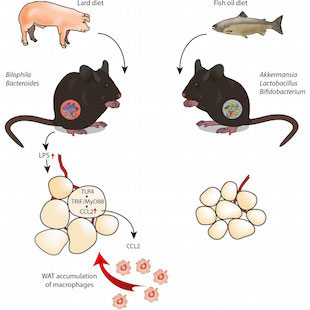The Scientist
-
![[:es]The Peopling of South America[:]](https://katedra.eus/app/uploads/2020/09/banner-southamerica-x.png)
[:es]The Peopling of South America[:]
[:es]While questions still outnumber answers, new findings from archaeology, genetics, and other disciplines are revealing surprising insights into the early cultures of the most recently populated continent.[:]
-
![[:es]Studies Unable to Reproduce Results of Two Diabetes Papers[:]](https://katedra.eus/app/uploads/2018/08/pancreas-banner-x.jpg)
[:es]Studies Unable to Reproduce Results of Two Diabetes Papers[:]
[:es]The original work found that an anti-malaria drug or the neurotransmitter GABA could increase the number of insulin-producing pancreatic cells in mice.[:]
-
![[:es]Rat Infestation Takes a Toll on Nearby Coral Reefs[:]](https://katedra.eus/app/uploads/2018/07/fish-banner-x.jpg)
[:es]Rat Infestation Takes a Toll on Nearby Coral Reefs[:]
[:es]A study shows that by killing off seabirds on islands, rodents slash the flow of nutrients into the ocean.[:]
-
![[:eu]Epigenetic Inheritance in Nematodes[:]](https://katedra.eus/app/uploads/2017/07/JulyMediLit_640px.jpg)
[:eu]Epigenetic Inheritance in Nematodes[:]
[:eu]The memory of a temperature spike can persist for as many as 14 generations in C. elegans.[:]
-
![[:eu]Warmer Temps Tied to Altered Microbiome in Lizards[:]](https://katedra.eus/app/uploads/2017/05/lizard-full.jpg)
[:eu]Warmer Temps Tied to Altered Microbiome in Lizards[:]
[:eu]Bacterial differences after three-month temperature hikes, modeled after global warming predictions, were evident one year later[:]
-
![[:eu]The Pangenome: Are Single Reference Genomes Dead?[:]](https://katedra.eus/app/uploads/2016/09/unnamed-1-1.jpg)
[:eu]The Pangenome: Are Single Reference Genomes Dead?[:]
[:eu]Researchers are abandoning the concept of a list of genes sequenced from a single individual, instead aiming for a way to describe all the genetic variation within a species.[:]
-
![[:en]Artificial Ion Pump Mimics Neuronal Speed, Precision[:]](https://katedra.eus/app/uploads/2016/09/unnamed-3-2.jpg)
[:en]Artificial Ion Pump Mimics Neuronal Speed, Precision[:]
[:en]Researchers create an artificial nerve that could be the forerunner of neural prosthetics.[:]
-

The Genes Underlying Autism Are Coming Into Focus
As researchers sequence the DNA of thousands of kids with autism, dozens of genetic subgroups are emerging.
-

How Fats Influence the Microbiome
Mice fed a diet high in saturated fat show shifts in their gut microbes and develop obesity-related inflammation.
